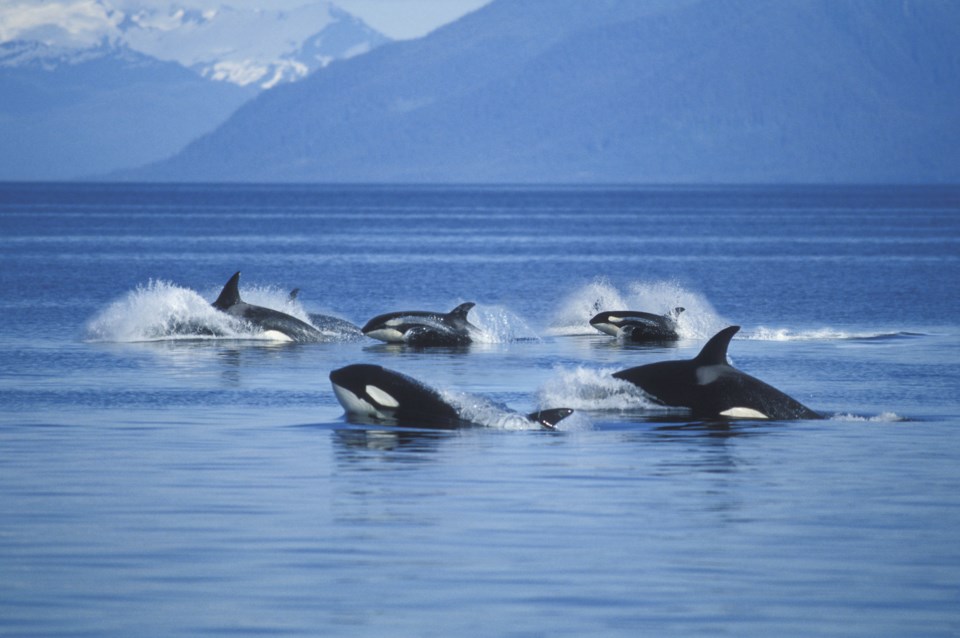June was proclaimed Orca Awareness Month in BC by the Lieutenant Governor in 2016.
OrcaMonthBC speaks for wild orcas and promotes freeing of captives seized from local waters, such as Lolita-Tokitae and Corky, imprisoned at Miami Seaquarium and SeaWorld respectively.
Wild orcas are struggling with ship collisions, entanglement in fishing gear, underwater noise which interferes with their ability to communicate by echo-location, and starvation due to lack of salmon. About 60 belugas and dolphins [are held] at the Vancouver Aquarium and Marineland in Niagara Falls.
Lolita-Tokitae was captured off Washington 52 years ago. She circles alone in the world's smallest whale tank in Miami (although in nature her kind swims 160 kilometres a day), under a blazing sun with nowhere to dive, no joy, no escape from depression. Letters begging for her release have been ignored by the Seaquarium, which refuses to budge from its attitude that it “owns” this orca, that she is mere property.
The American Nonhuman Rights Project challenges the notion that animals are property, and acts in court for chimpanzees and elephants as intelligent, sensitive, self-aware clients to be represented as legal “persons,” not “things.”
This is progress, but it hasn't yet helped orcas Tokitae, Corky, and Kiska. Canada has not acknowledged rights of person-hood for animals, and doesn't even follow its own Species At Risk Act, which since 2001 has obliged the government to take emergency action to save the southern resident orcas from extinction. Cabinet has still decided only to “advance feasibility work within sub-areas of critical habitat.”
Canada did in 2019 pass the Ending Captivity of Whales and Dolphins Act, which banned further capture, breeding, and import and export—with exceptions. Despite the ban, Marineland recently sold five belugas to Connecticut-based Mystic Aquarium for “scientific research.”
Some countries have outlawed whale captivity completely. France in 2018 announced it intends to transition captive whales to seaside sanctuaries.
Canada has a long way to go, but lawyers at West Coast Environmental Law (wcel.org) are calling for both a legal definition of animal person-hood and establishment of ocean sanctuaries with a governance board empowered to guard the whales' welfare.
The American-based Whale Sanctuary Project has purchased marine property at Port Hilford in Nova Scotia, which it's readying for cetaceans rescued from aquariums. The trick is in the rescue part, given lack of law, which criminalizes the captivity industry. For B.C.'s Corky, a 40-acre inlet is being readied on the West Coast by Paul Spong and partners at Orca Lab.
Orcas will only be released by aquariums, however, when the law makes their imprisonment a crime.
Canadians who think so should contact MPs and the Minister of Justice. Under Canada's Criminal Code, animal cruelty charges can be laid on the basis of “causation of pain and suffering or injury.”
It's hard to see the imprisonment of large, intelligent, sensitive, family-oriented whales in cement pools as anything but injurious.
S. B. Julian// Victoria




